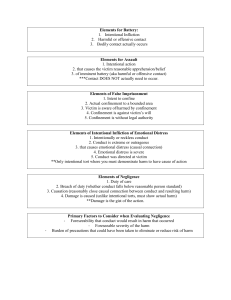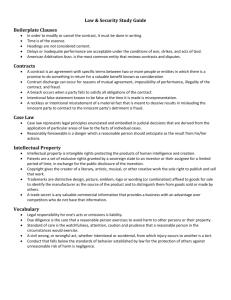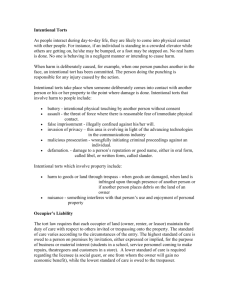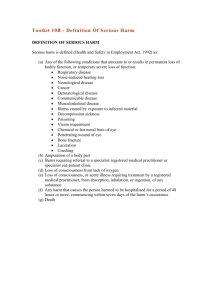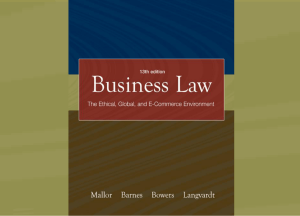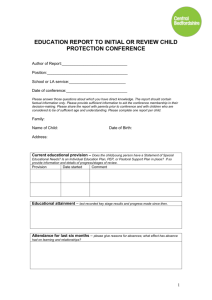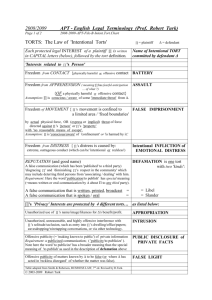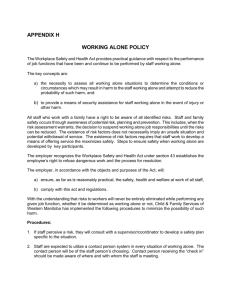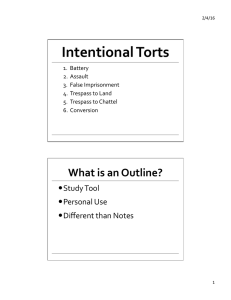Business Law and the Regulation of Business Chapter 7
advertisement
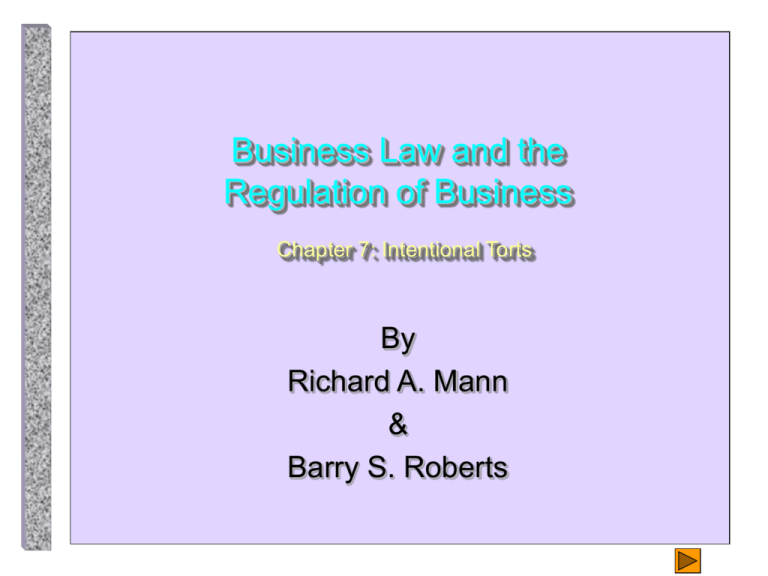
Business Law and the Regulation of Business Chapter 7: Intentional Torts By Richard A. Mann & Barry S. Roberts Topics Covered in this Chapter A. Harm to the Person B. Harm to Right of Dignity C. Harm to Property D. Harm to Economic Interests Harm to the Person Battery – intentional infliction of harmful or offensive bodily contact. Assault – intentional infliction of apprehension of immediate bodily harm or offensive contact. False Imprisonment – intentional confining of a person against her will. Infliction of Emotional Distress – extreme and outrageous conduct intentionally or recklessly causing severe emotional distress. Intent Does defendant desire to cause consequences? Yes No Does defendant believe consequences are substantially certain to result? No No Intent Intent Yes Harm to the Right of Dignity Defamation – false communication that injures a person's reputation. Libel – written or electronically transmitted defamation. Slander – spoken defamation. Defenses – truth, absolute privilege, conditional privilege, and constitutional privilege are defenses to a defamation action. Invasion of Privacy Appropriation – unauthorized use of a person's identity. Intrusion – unreasonable and offensive interference with the seclusion of another. Public Disclosure of Private Facts – offensive publicity of private information. False Light – offensive and false publicity about another. Harm to Property Real Property – land & anything attached to it. Trespass – wrongfully entering land of another. Nuisance – a nontrespassory interference with another's use and enjoyment of land. Personal Property –property other than land. Trespass – an intentional taking or use of another's personal property. Conversion – intentional exercise of control over another's personal property. Harm to Economic Interests Interference with Contractual Relations – intentionally causing one of the parties to a contract not to perform. Disparagement – publication of false statements about another's property or products. Fraudulent Misrepresentation – a false statement, with knowledge of its falsity, intended to induce another to act. Intentional Torts Interest Protected Person Freedom from contract Freedom from apprehension Freedom of movement Freedom from distress Dignity Reputation Reputation Privacy Privacy Freedom from wrongful legal Freedom from wrongful legal actions actions Property RealReal Personal Personal Tort Battery Assault False imprisonment Infliction of emotional distress Defamation Appropriation Intrusion Public disclosure of private facts Public disclosure of private facts False light False light Misuse of legal procedure Misuse of legal procedure Trespass Nuisance Trespass Conversion Economic Contracts Contracts Goodwill Goodwill Freedom Freedom fromfrom deception deception Interference with contractual rights Disparagement Fraudulent misrepresentation Defenses to Intentional Torts Consent – a person may not recover for injury to which he willingly and knowingly consents. Self-Defense – a person may take appropriate action to prevent harm to himself where time does not allow resort to the law.
